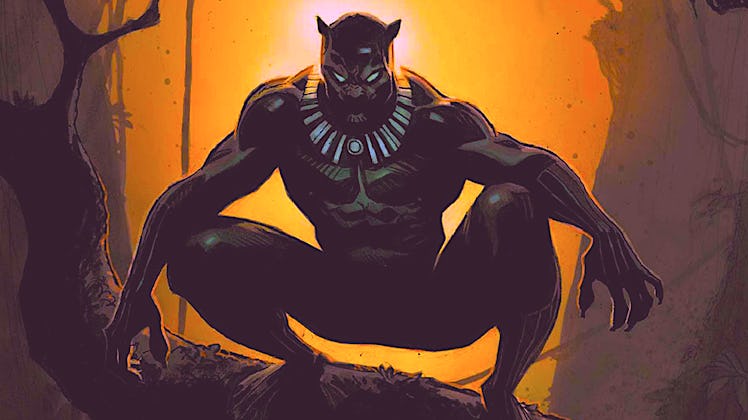‘Black Panther’ Has Black Parents’ Back
"One of the lessons I took away from the movie as a father is that we're only here for a limited amount of time. So while you have the chance to be here with your father and your elders, take what you can from them."

The Marvel film Black Panther has shattered box office records while largely living up to the expectations of an audience excited for the cinematic reign of T’Challa and eager to see strong black men and women leading a major film. With an overwhelming black cast, Black Panther attracted a mixed audience but truly resonated in black communities, where it has already prompted a sort of coming together and demonstrated the degree to which representation matters — specifically to parents and children. For Ellis McGruder, a father of 4- and 16-year-old sons, seeing the film on the Saturday after the release was a profound and memorable experience.
I have a 4-year-old and a 16-year-old. The 4-year-old, he’s only going to go so deep with the movie. All he knows is he has a costume that he runs around in. I think he understands the symbolism behind it, but my 16-year-old takes a more deep, introspective view of it. One thing about Black Panther that struck both of us was how cutting the social commentary was. I really didn’t expect the down-to-earth depictions of some of the things that a lot of African Americans — and black people across the world in general — face today.
African Americans have been confronted with all-white casts for our whole lives. If you don’t have a critical eye, you will just accept the storylines given to you, and if there is a black character that comes up every once in a while, that’s what becomes the norm. To not see yourself in a criminal or any other stereotype is welcome and meaningful.
There are these conversations that happen in any black household that, nine times out of ten, don’t leave the house. To share those conversations with the world — and to give a glimpse of the African American plight in America — and show multiple perspectives has set a new bar.
The producers didn’t just sugar coat some of the issues that we face. They spoke directly to them, especially with Killmonger. For him to see the world the way he does — and talk about how he wants it to change — a lot of us don’t want to talk about it. When he talks about those things that have affected us today as African Americans, it was rewarding, it was refreshing, but also, it gave me a little bit of pause. I don’t know if everyone is ready to have that level of conversation, especially in a so-called Marvel fictitious universe.
One of the things my son and I talked about was the beginning of the movie being set in Oakland. I wondered if it was this done intentionally to draw a comparison between the Black Panther Revolutionary Party and Black Panther, the comic book hero. He could have picked any city in the world to have that scene. I asked my son, because he didn’t put it together, “Did you catch some of the imagery in T’Challa’s uncle’s apartment?” One of the posters on the wall was a Public Enemy poster. They’re one of the most politically conscious rap groups that ever lived.
The lesson I took away from the movie as a father is that we’re only here for a limited amount of time. So while you have the chance to be here with your father and your elders, take what you can from them. Learn from them. And try to make yourself better and learn from your mistakes. I thought when T’Challa went to see his father, when he comes back the second time and tells him that he was wrong, as an audience, you realize that even though you love your father, they don’t always do the right thing. They make mistakes. It’s your job as a man to learn from that and take everything good they brought you and correct on everything wrong, to make yourself better.
As we look down the road, we understand what roads we travel. Those same roads we travel are the roads our kids are going to travel.
This is not necessarily a black or white movie. But this is a depiction of where we are, what our circumstances are, our political climate, and economic reality and our history and our future and what they are today. There just haven’t been movies like that.
— As Told To Lizzy Francis